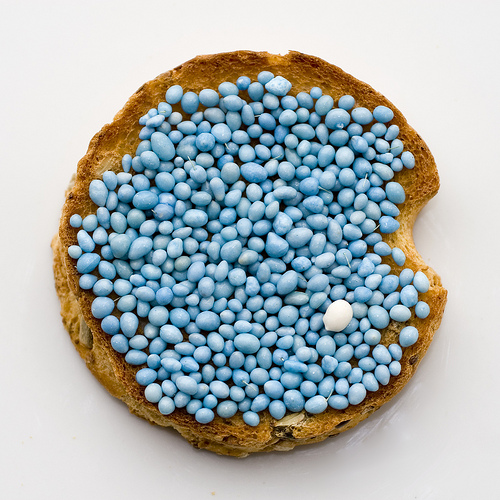Unfortunately, when it comes to Dutch property, what you see is not always what you get. A seemingly perfect house or apartment could have some sort of ‘hidden defect’. This kind of defect will only come to light after you have signed a contract, and moved into your new home in the Netherlands. By then, there may be nothing you can do about it! To avoid falling into this trap, read on. We will outline some of the most common hidden defects, and show you how to spot them sooner rather than later.
What is a 'hidden defect'?
So, what exactly are we referring to when we say: ‘hidden defect’?
- ‘Verborgen gebreken’ is a well-known concept in Dutch real estate
- The closest possible English translation is: ‘hidden defect’. However, this simply does not carry the shady undertone that epitomizes the Dutch phrase
- In legal terms a hidden defect, or a ‘latent’ defect, is an issue with your property that exists at the time of rental or purchase. It is, however, invisible to the naked eye during viewings and negotiations
- A hidden defect is severe enough to significantly reduce the quality of a property. Hence, had it not been hidden from renter or buyer, he or she would have either paid less for the property, or perhaps not purchased or rented it at all
Examples of hidden defects
In order to avoid renting or buying a property with a hidden defect, it is important to know what kind of thing to watch out for. Here are a few examples:
Case 1: The Landlord
Sandra and Joseph chose a rental house, in a great location in the Netherlands. They signed the contract and planned to move in a month later. The landlord seemed to be professional, organized and friendly. He agreed to re-paint the walls, shampoo the carpets, empty the cellar and install more storage cabinets in the kitchen and bathrooms before they moved in. But…
- When Sandra and Joseph arrived at their new home on the pre-arranged date, the house was in complete disorder. Step ladders, tools, carton boxes and cans of paint were scattered all over the place
- The landlord casually apologized, and continued with what he was doing. None of the conditions he had agreed to had been met. The house was filthy. The heating had not been serviced, the painting had not been done and he was hurriedly trying to put some cabinets together
- It took weeks before everything was completed
- After this bad start, there was tension, irritation and a lack of trust between landlord and tenants for the duration of the tenancy
- The landlord proved to be completely unreliable: coming over without warning and failing to reply to emails
- Furthermore, he was reluctant to take care of minor issues, such as a wobbly toilet seat, a loose handrail and a noisy ventilation unit in the kitchen
So, in this case, the landlord’s character proved to be the ‘hidden defect’! Unfortunately, this is very common. It is so difficult to detect this defect, since it is completely invisible to the naked eye at the time of rental.
Loosing Your Deposit in NL
Sadly, the landlord defect often comes with a further, unpleasant accompaniment. Sandra and Joseph experienced this as well:
- At the end of the five-year tenancy, Sandra and Joseph checked-out
- The landlord attended the check-out. He pointed out water stains on the parquet floor, discoloration on the curtains and scratches in the woodwork on the sliding doors
- The landlord wanted to use Sandra and Joseph’s deposit to cover these damages
Protect Yourself from this Hidden Defect
There are a few things you can do, in order to avoid this defect in the first place:
- Many excellent properties are not advertised publicly, because landlords wait for a ‘recommended tenant’ to come along. So, get in touch with any contacts you have in the Netherlands. Ask if they know of an available property, or can recommend a reliable agency to you. You will be less likely to have a troublesome landlord if you do this
- Make sure you are completely clear on the terms of the contract before you sign anything
- Ask to have the terms put into the contract in writing and in detail! It is legal to have an oral agreement in the Netherlands, but it is far safer to have a written record
- Some questions seem obvious, but ask them anyway. Check, for example, that you can definitely register at the address, and that the rent will not go up whilst you are living there. It can be a bad sign if your landlord gives vague or non-committal answers
- Ask whether your landlord has contents insurance. If they don’t, then be wary. This insurance would cover any accidents or damage caused by you as a tenant
Coping with a Difficult Landlord in NL
Unfortunately, however cautious you are and however diligently you take these steps, you can still end up with an unreliable landlord. If this happens, all is not lost:
- It might seem obvious, but if you try as hard as you can to keep the property clean, tidy and free from damage, you will save yourself a great deal of hassle. However difficult a landlord is, they will not be able to charge you for something you have not done
- Report any damage you do make immediately. Inevitably, something will get scratched, stained or broken. By being upfront about it with your landlord straight away, you are upholding your part of the tenancy agreement. If they come round and discover it later, you will be in more trouble
- Before you move in, have a discussion with your landlord about what constitutes ‘normal wear and tear‘. There will probably be a clause about this in your tenancy agreement. Still, clarify this with them, and ask to have it in writing. This way, if they accuse you of causing serious damage later on, you will be able to produce the document
- Ensure that you take a thorough condition report as soon as, or even before, you move in! Take pictures, and do not be scared of getting into the details too much. This proof will be invaluable to you in later disputes
Case 2: Insurance
Insurance itself is another, very common, hidden defect in the Netherlands. This one only applies to rented property. Unless you ask before you sign the contract, there is obviously no way you can see that a property is not insured. This makes it an easy trap to fall into! Here are the bullet points:
- You, as a tenant, are unable to insure possessions that do not belong to you. Plus, your own liability insurance will not cover them
- Only your landlord can insure his or her own furniture, furnishings and property
- As we explained in the previous case, the landlord should do this!
- If they do not have insurance, you might struggle to get your deposit back at the end of your tenancy
How can You Avoid this Hidden Defect?
The only way around this is to remember to ask your landlord whether his or her property is insured, before you commit to renting it! If it is not, we advise you to find an insured property instead.
Case 3: The Heating System
This hidden defect often catches people out in the Netherlands. The defect only becomes apparent once the weather turns cold. Therefore, if your tenancy begins in the summer, you can live in your new property for months before the problem arises. Here is how it might transpire:
- Sometimes, properties come with a basement. Understandably, many tenants see this as a proper room. The space will often be turned into a family room, or even a living area, that everyone uses regularly
- Come November, you might realize that the room cannot be heated, and is too cold to use until next summer
- The landlord should have mentioned a matter like this before he or she let you commit to the house
- If the landlord is reluctant to find a way to heat the room you will be stuck with half a house during the windy Dutch winter, while paying the full price for the property
How can You Steer Clear of this Hidden Defect?
Again, the only way to avoid falling foul to this hidden defect is to check as thoroughly as you can before you move in. Ask your landlord:
- To explain and show you how the room will be heated
- Whether it will be warm enough to use in the winter months
- How they plan to fix the issue, if it will not be warm enough
Why are hidden defects so common in NL?
Surely it is in everyone’s best interests to be fair and transparent in a property transaction. How come landlords and house owners hide defects from tenants, and cause all this trouble? There are several reasons:
- Before 2012, homeowners were experiencing the golden years of renting in the Netherlands. Rental prices were sky high, with revenues of between 6 and 10%
- Since the financial crisis, however, the real estate market has become increasingly unstable
- In 2012 rental prices dropped by 10-15%, compared to previous years
- Nowadays, many property owners are not sure how to protect their investment, and some have financial problems
- In especially bad circumstances, a landlord’s mortgage bank might even be threatening to sell his or her property completely
 Side Note
Side Note
- If the owner of your property is forced to sell up during your tenancy, do not worry. The existing tenancy agreement will always be honored. It just means that you will have a new owner to deal with
- It is rare for a property owner, who cannot fulfil his or her financial obligations, to not to inform the mortgage bank that he or she has leased out the property. In this extreme case, the bank would be obliged to sell the property, and the tenant would have to vacate it
There are Positive Tenancy Stories too
This all seems very gloomy. It is important to know your rights, to have your wits about you and to scrutinize your property thoroughly for hidden defects. However, more often than not, your Dutch landlord will be very obliging and will not deliberately hide anything from you!
 Tip
Tip
Advice to Property Owners
A small note to homeowners who are considering offering a property on the rental market in the Netherlands:
- It is a blessing to have a good tenant, who takes care of your property
- If you try to save money on minor issues you will not earn very much at all, and will only damage your own reputation
- Being a responsible and helpful landlord or landlady, with a fair rent price, will make your investment so much more secure and rewarding
 Useful links
Useful links
- Nederlandse vereniging van makelaars : The NVM is the Dutch Association of Real Estate Brokers
- Vereniging eigen huis: The Dutch Housing Association
- The ACCESS guide to Housing in the Netherlands

Everything you need to know about c ...
As an expat in the Netherlands, there might be a couple of traditions that will ...

The UnDutchables 9.0
Following the legendary previous eight editions of The UnDutchables, the 9th edition of this all ...

Gift giving in the Netherlands-all ...
If you feel like skipping your birthday, you may be in for a challenge when ...

The American Netherlander - 25 Year ...
In 1994, author Greg Shapiro came to the Netherlands. The idea was to spend a ...

How to Meet Locals in Amsterdam
Being far from home in a foreign city or country can be one of the ...

Typical Dutch Festivities
In the Netherlands, the Christmas season is marked by a sequence of typical Dutch festivities ...

Special Occasions the Dutch way
The Dutch love to mark a special occasion. What's more, for each one, they ...

Dutch Customs and Etiquette
The Netherlands has its own unique set of customs. There is an etiquette for how ...